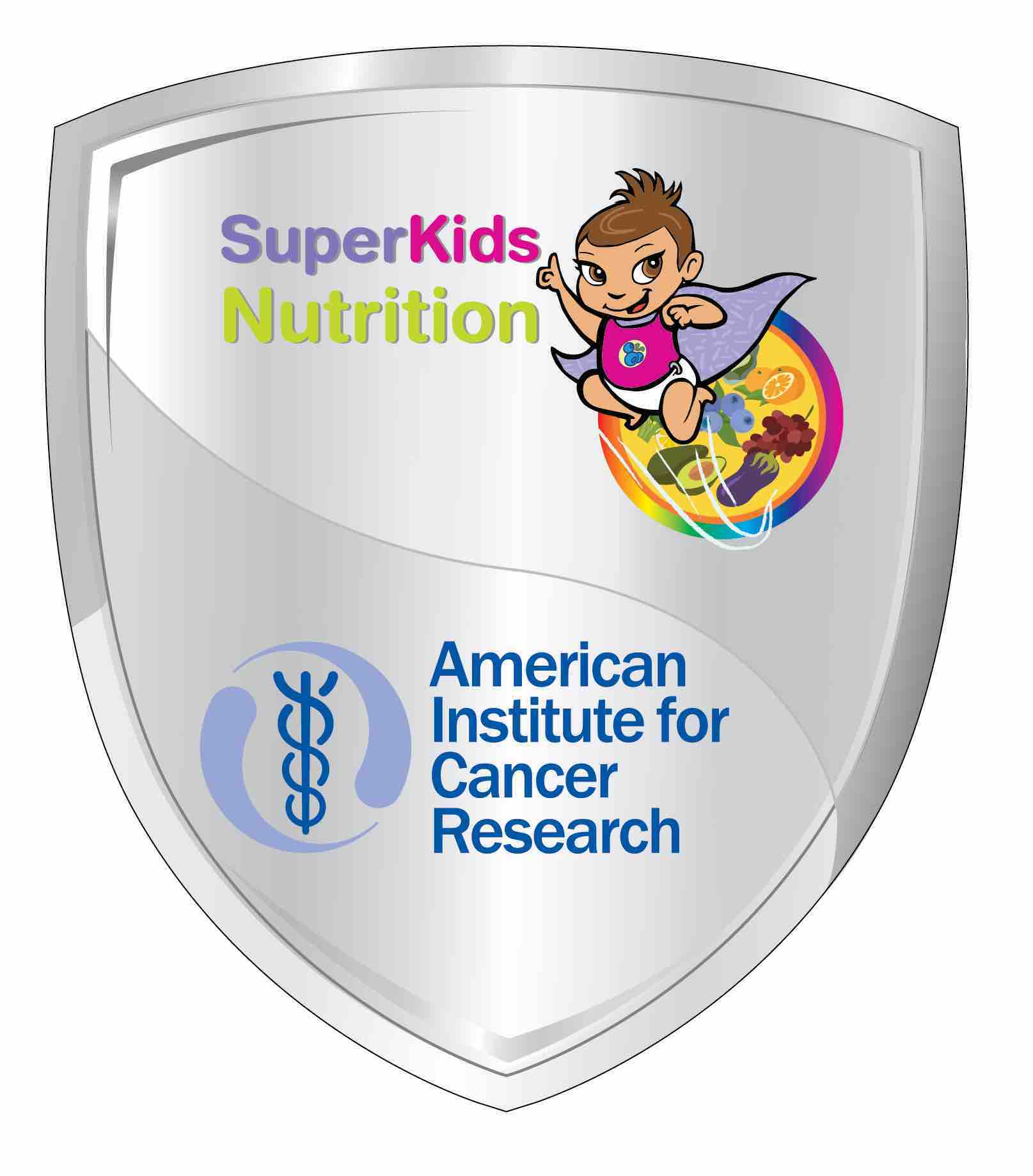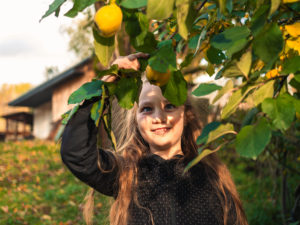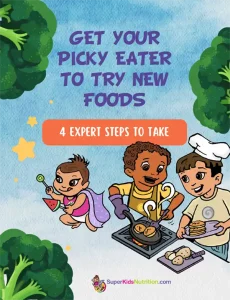
In our first set of questions with SuperKids Nutrition founder, Melissa Halas, we learned about the importance of good food choices and behaviors starting at a young age. It’s time for part two!
Melissa started by giving us a better understanding of how weight and physical activity play an important role in cancer prevention later in life. It’s clear that we shouldn’t overlook the impact of small changes we can make now for a brighter future for our children. Let’s dive into the rest of the interview with some tips about how to take action!
Okay, so now that we understand why it’s important to feed children a healthy diet for cancer prevention, can you discuss the foods parents should focus on? What does a cancer-preventing diet look like?
Start by getting your kids to eat a healthy diet that includes plenty of colorful vegetables, fruits, whole grains, and beans. By focusing on these plant foods, kids absorb natural compounds called “phytochemicals” that help protect the body’s cells against cancer. Plant foods also provide fiber and antioxidant vitamins and minerals, all of which research strongly links to lower cancer risk. Plant foods are also low in calories as long as they are not processed with added fats and sugars.
Can you share some specific actions that parents can take today to help prevent cancer in their children tomorrow?
There are so many things parents can do! Here are five ideas:
- Offer whole food healthy snacks. These should include fruits, veggies, whole grains, and bean dips, instead of highly processed foods which are low in fiber and phytochemicals and contain high amounts of salt and added sugar. Offer these whole foods when kids are hungry and most likely to eat them, and fill half of their plate with fruits and vegetables at every meal.
- Aim for at least 4 different colors of fruits and vegetables every day. Doing this as a family will help increase the intake of phytochemicals that can benefit you all. Use our Super Crew Colorful Food Tracker to encourage more variety of fruits, veggies, beans, whole grains, spices, and herbs.
- Get your heart pumping! Turn off the TV and play games, do fun outdoor activities, or even garden with your child. Remember it doesn’t have to be all at once – 15+15+15+15 adds up to 60 minutes! Track your fitness with the Super Crew activity tracker.
- Let your child help you. Ask for help setting the table, picking colorful foods at the grocery store, and preparing healthy meals as this can get them interested in eating what they have made. Check out our guide on getting kids active in the kitchen.
- Try going meatless one night a week. Plant–based meals are an inexpensive and easy way to get the family to eat more fruits, vegetables, whole grains, and beans. This is also a perfect time to try one new whole grain and one new kind of bean each week.
In addition to promoting the health of their children, what other benefits are linked to preventing cancer among kids?
Here are two other major benefits that will come with feeding children nutritious, disease-preventing food:
- Decreased healthcare costs: Improving the next generation’s health will help cut down on healthcare costs, both in the near and distant future.
- Prevention of other obesity-related diseases: In addition to certain cancers, obesity is also linked to a number other of diseases, including high blood pressure, gastroesophageal reflux, heart disease, type 2 diabetes, and Alzheimer’s Disease. By changing the health behaviors of our children today, we can help them prevent weight gain that is linked to these conditions.
Where can parents find tools and resources to help them make healthier choices for their families?
This website has tons of great tips, advice, and easy-to-understand articles about how to make the whole family healthy! You can also follow us on Twitter, Instagram, Pinterest, or Facebook, or check out my personal blog.
Other useful resources include the online toolkits created by SuperKids Nutrition and AICR, which give families ways to track their healthy changes, and provide recipes and fun activities –they are a must-see for family nutrition tools! Here are links to each toolkit:
- Toolkit 1: Eat Powerful Plant Foods
- Toolkit 2: Go With Whole Grains
- Toolkit 3: Healthy Protein Muscle Builders
- Toolkit 4: Get Active
- Toolkit 5: Healthy Grocery Shopping
- Toolkit 6: Taste a Rainbow of Colors: Fruit and Veggie Cancer Fighters
How can parents get kids excited about eating healthy foods and staying active to prevent cancer later in life?
Involve your kids in both the shopping and cooking process for a healthy dinner. Teach them what constitutes nutritious food and get them excited about cooking these foods for themselves and the rest of the family. In the end, it’s really about getting kids excited about new tastes. For younger kids, make healthy food visually appealing! Whether you make fruit or veggie kabobs, use cookie cutters or just place the food on a plate, take a few extra seconds to cut and arrange it nicely. They’ll eat more!
Create a theme night like Taco Tuesday, and let them have a creation station. You can do this with many ethnic cuisines. Show kids that good nutrition can be healthy and fun.
Lastly, don’t forget moving more is essential for cancer prevention too! Plan family activities to get everyone moving. Let your child know that exercising is something fun, not a chore. Exploring your surroundings with a hike or playing a game of basketball are both great ways to be active.
Any last takeaways for parents?
You can create a healthier future for your kids. The choices you make with your children now will help them live to their full potential. Making simple changes, like eating healthy foods and moving more each day, has the power to give your children a healthier future – one where they can lower their risk of cancer, diabetes, heart disease, and other serious, expensive conditions.












